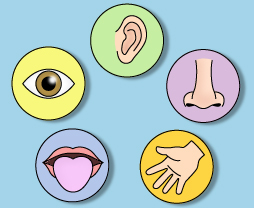Hot, Light, intense, malodorus, sharp
Positive Traits:
Sharp Intellect and speech, goal oriented, sales oriented, strong
Negative traits:
Anger, burn out, forceful
Prone to:
Heartburn, high blood pressure, red rashes, early greying, problems with eyes
To stay in balance:
Cool calm, good boundaries around work and play, cool sports and exercise, swimming skiing, being in nature,
Stuff I pulled off the web
Here are some of the common characteristics of people who have a predominantly Pitta body type.
Medium physique, strong, well-built
Sharp mind, good concentration powers
Orderly, focused
Assertive, self-confident, and entrepreneurial at their best; aggressive, demanding, pushy when out of balance
Competitive, enjoy challenges
Passionate and romantic; sexually have more vigor and endurance than Vatas, but less than Kaphas
Strong digestion, strong appetite; get irritated if they have to miss or wait for a meal
Like to be in command
When under stress, Pittas become irritated and angry
Skin fair or reddish, often with freckles; sunburns easily
Hair usually fine and straight, tending toward blond or red, typically turns gray early; tendency toward baldness or thinning hair
Uncomfortable in sun or hot weather; heat makes them very tired
Perspire a lot
Others may find them stubborn, pushy, opinionated
Good public speakers; also capable of sharp, sarcastic, cutting speech
Generally good management and leadership ability, but can become authoritarian
Like to spend money, surround themselves with beautiful objects
Subject to temper tantrums, impatience, and anger
Typical physical problems include rashes or inflammations of the skin, acne, boils, skin cancer, ulcers, heartburn, acid stomach, hot sensations in the stomach or intestines, insomnia, bloodshot or burning eyes and other vision problems, anemia, jaundice.
Physical Features
These people are of medium height, are slender and body frame may be delicate. Their chests are not as flat as those of vata people and they show a medium prominence of veins and muscle tendons. The bones are not as prominent as in the vata individual. Muscle development is moderate.
The pitta complexion may be coppery, yellowish, reddish or fair. The skin is soft, warm and less wrinkled than vata skin. The hair is thin, silky, red or brownish and there is a tendency toward premature graying of hair and hair loss. The eyes may be gray, green or cooper-brown and sharp: the eyeballs will be of medium prominence. The nails are soft. The shape of the nose is sharp and the tip tends to be reddish.
Physiologically, these people have a strong metabolism, good digestion and resulting strong appetites. The person of pitta constitution usually takes large quantities of food and liquid. Pitta types have a natural craving for sweet, bitter and astringent tastes and enjoy cold drinks. Their sleep is of medium duration but uninterrupted. They produce a large volume of urine and the feces are yellowish, liquid, soft and plentiful. There is a tendency toward excessive perspiring. The body temperature may run slightly high and hands and feet will tend to be warm. Pitta people do not tolerate sunlight, heat or hard work well.
Psychologically, pitta people have a good power of comprehension; they are very intelligent and sharp and tend to be good orators. They have emotional tendencies toward hate, anger and jealousy.
They are ambitious people who generally like to be leaders. Pitta people appreciate material prosperity and they tend to be moderately well-off financially. They enjoy exhibiting their wealth and luxurious possessions.
Signs of Pitta Aggravation
Angry, Irritable
Hostile, Enraged, Destructive
Impatient
Critical of self and others
Argumentative, Aggressive
Bossy, controlling
Frustrated, Willful, Reckless
Acidity, heartburn, Stomach ulcer
Fitful sleep, Disturbing dreams
Diarrhea, Food allergies
Bad breath, Sour body odor
Very sensitive to heat, Hot flashes
Skin rashes
Boils
Bloodshot eyes
Acne
Weakness due to low blood sugar
Fevers, Night sweats
Also See: Other Signs of Pitta Imbalance
When you experience symptoms such as, excessive body heat, digestive problems, a tendency to be hostile or angry and controlling, impatience, a tendency to exert excessive effort to achieve goals, vision difficulties, and being prone to make errors in judgment because of mental confusion or because passion or emotion blurs powers of intellectual discernment, there is a good possibility that you are suffering from pitta imbalance.
Indications of balanced pitta influences are strong powers of digestion, vitality, goal-setting inclinations, good problem-solving skills, keen powers of intelligence, decisiveness, boldness and courage, and a bright complexion.



